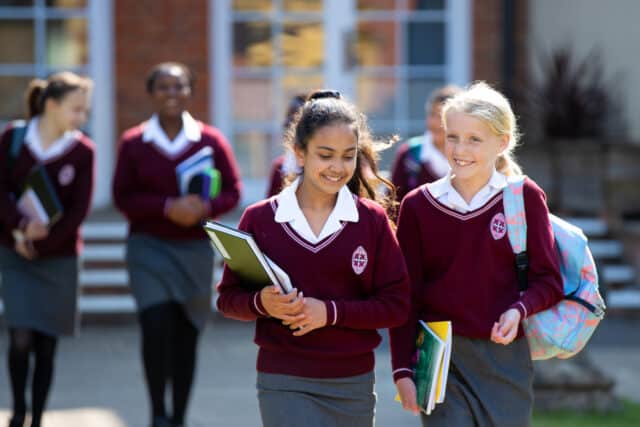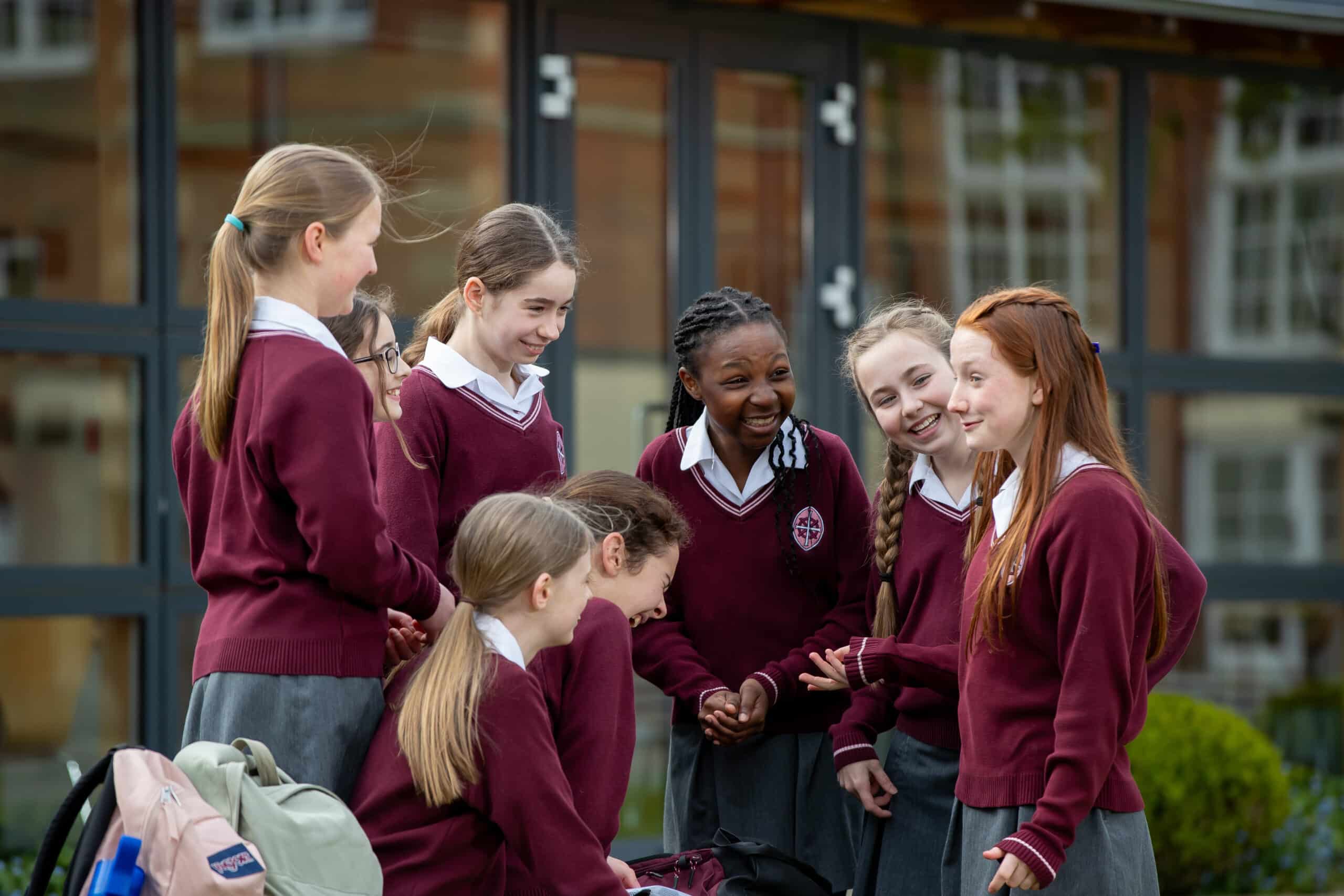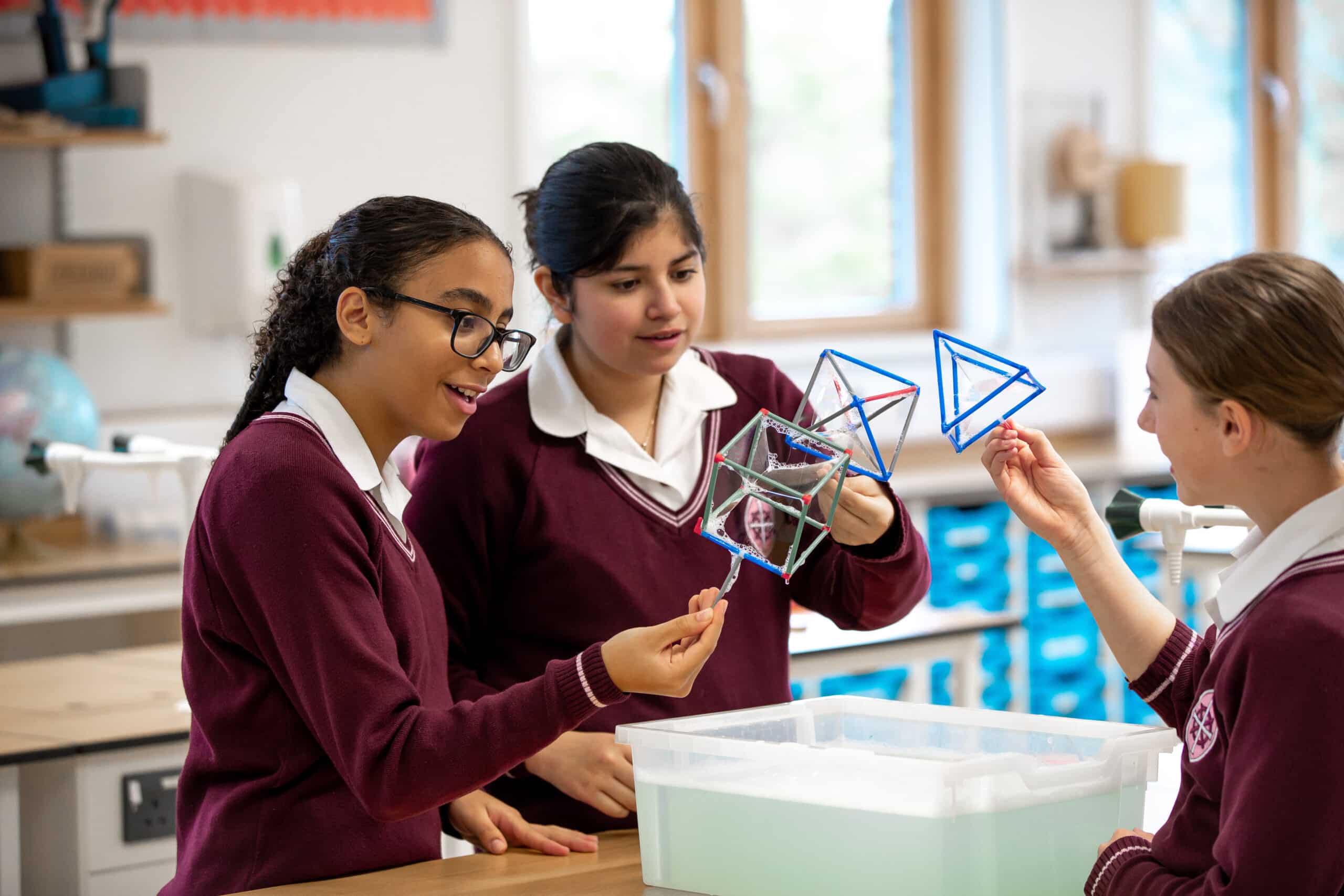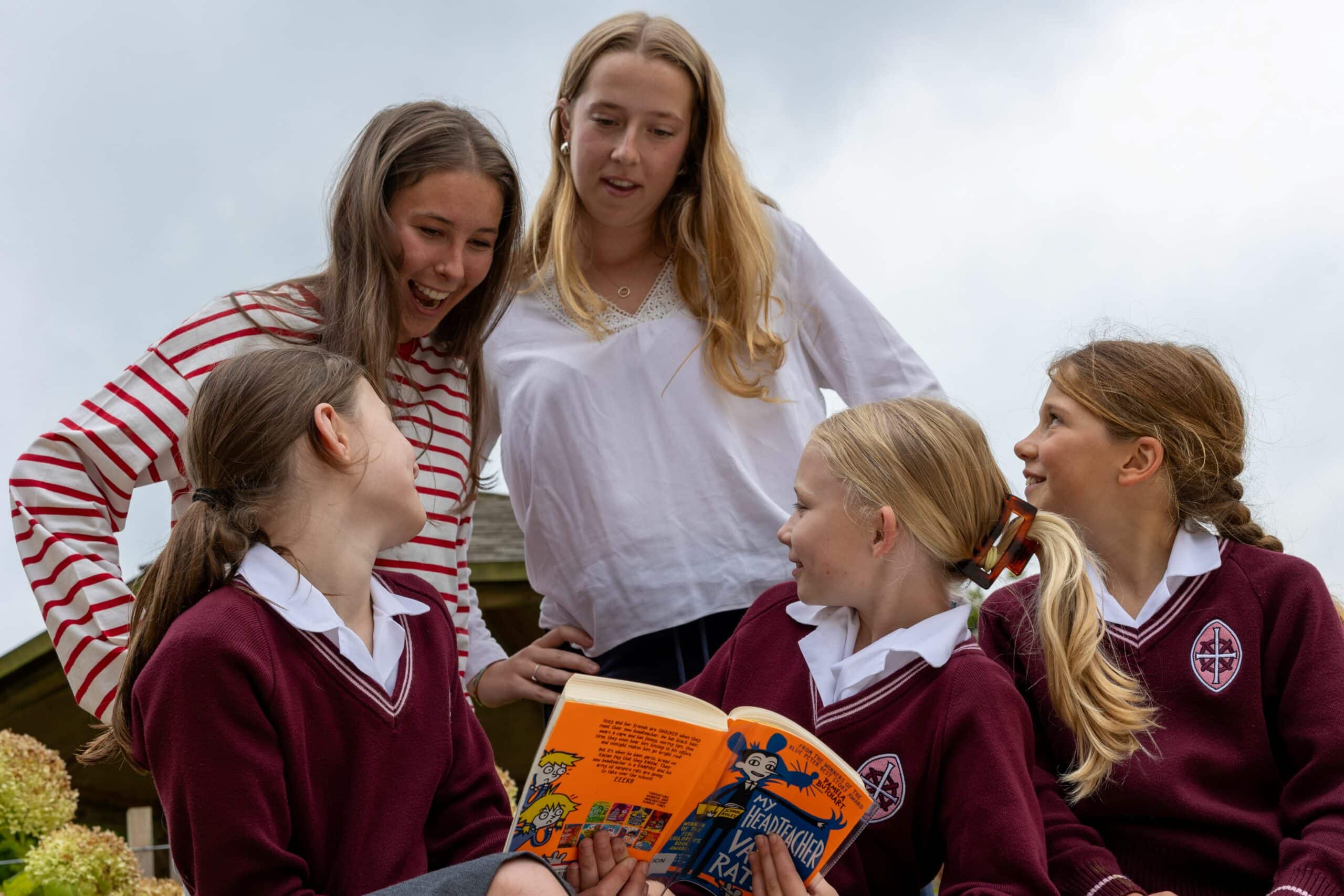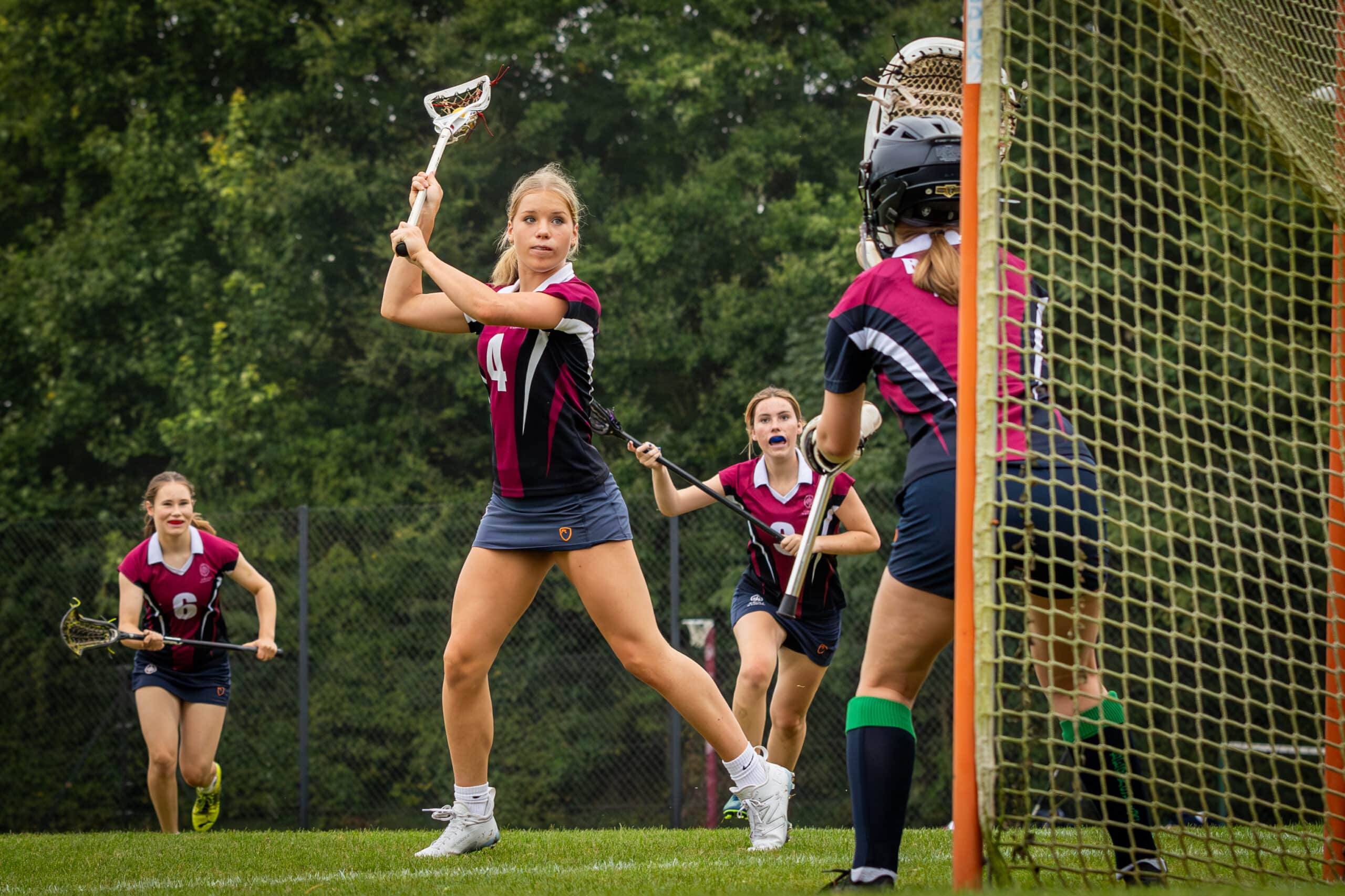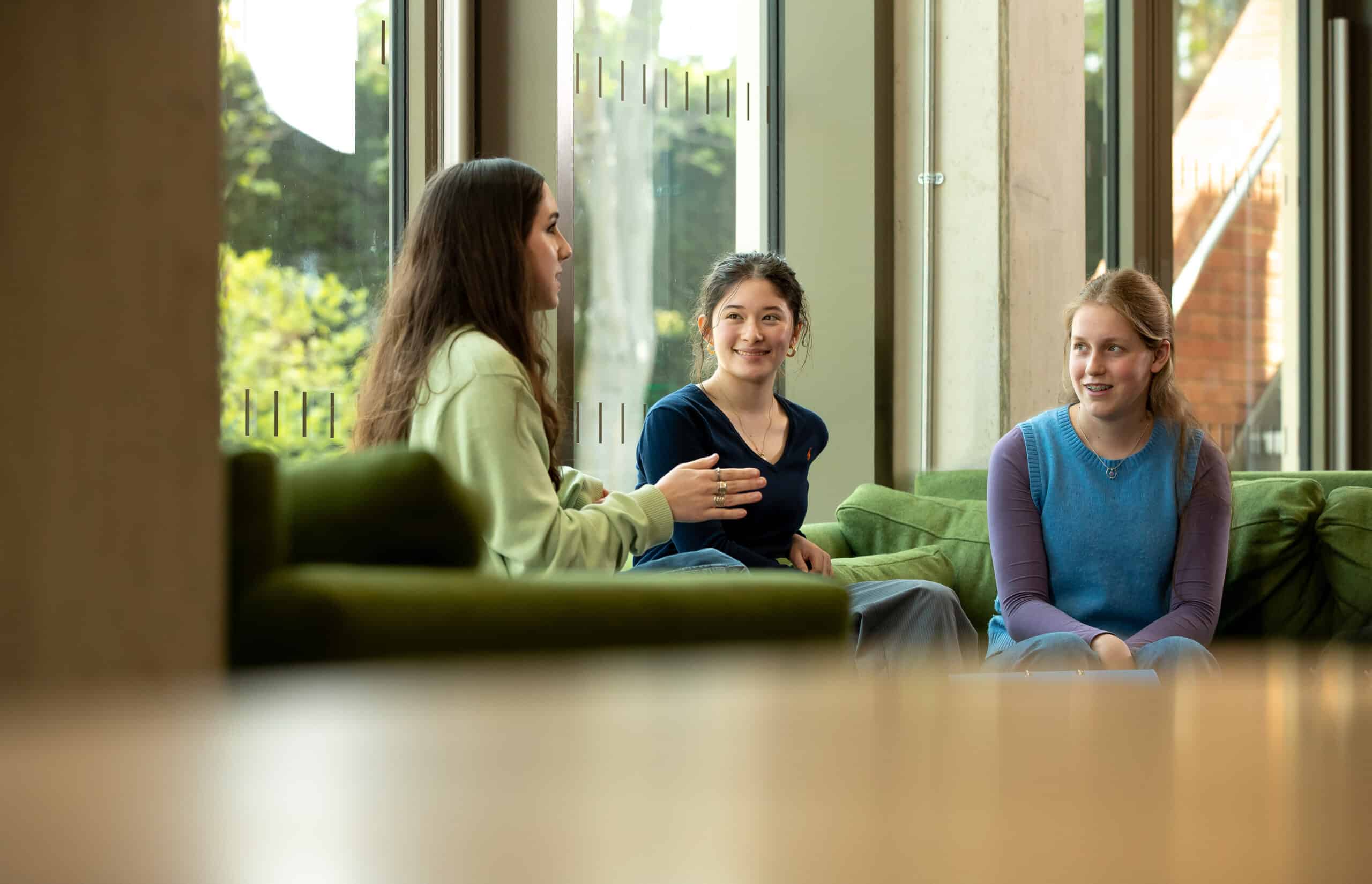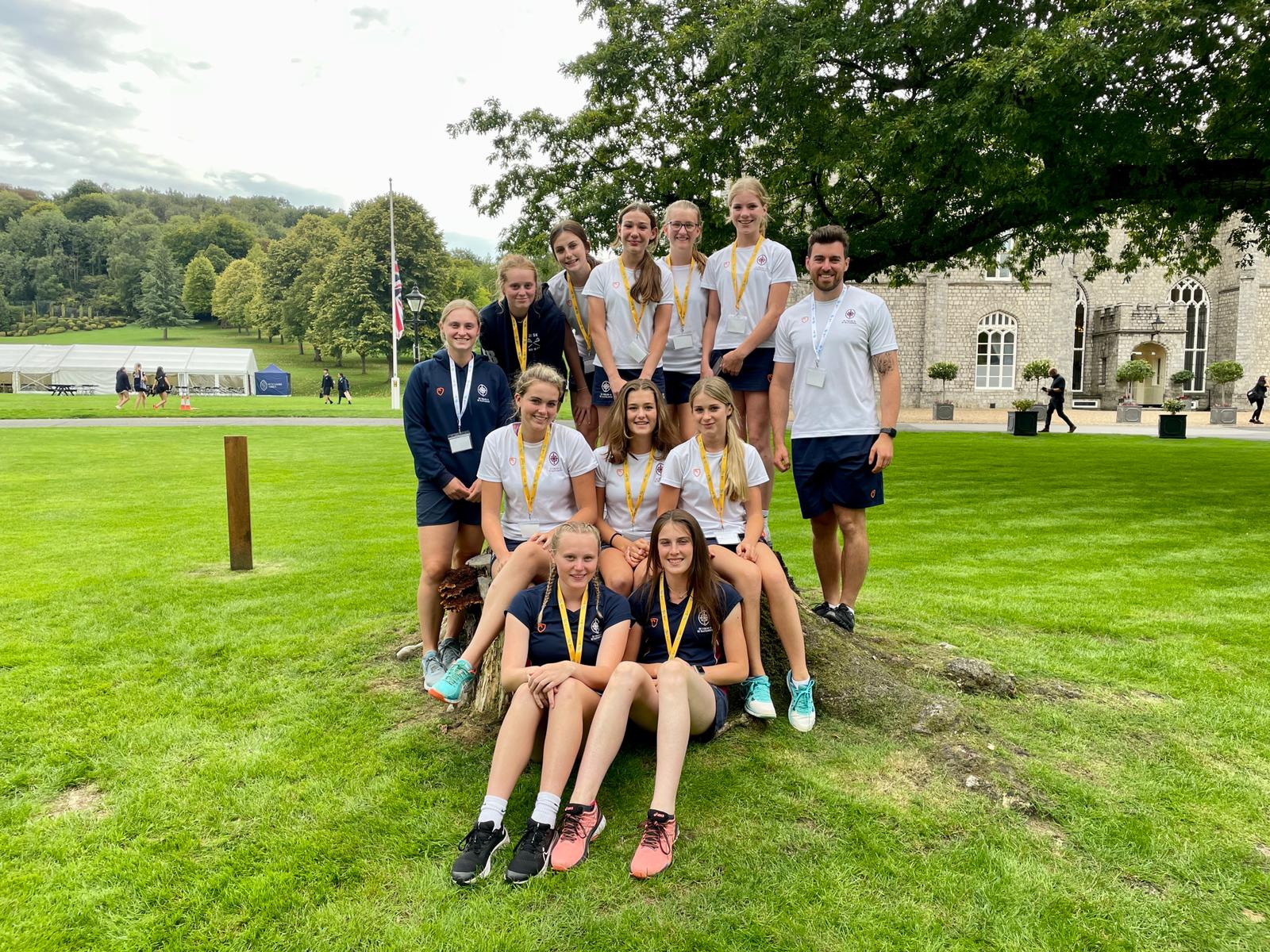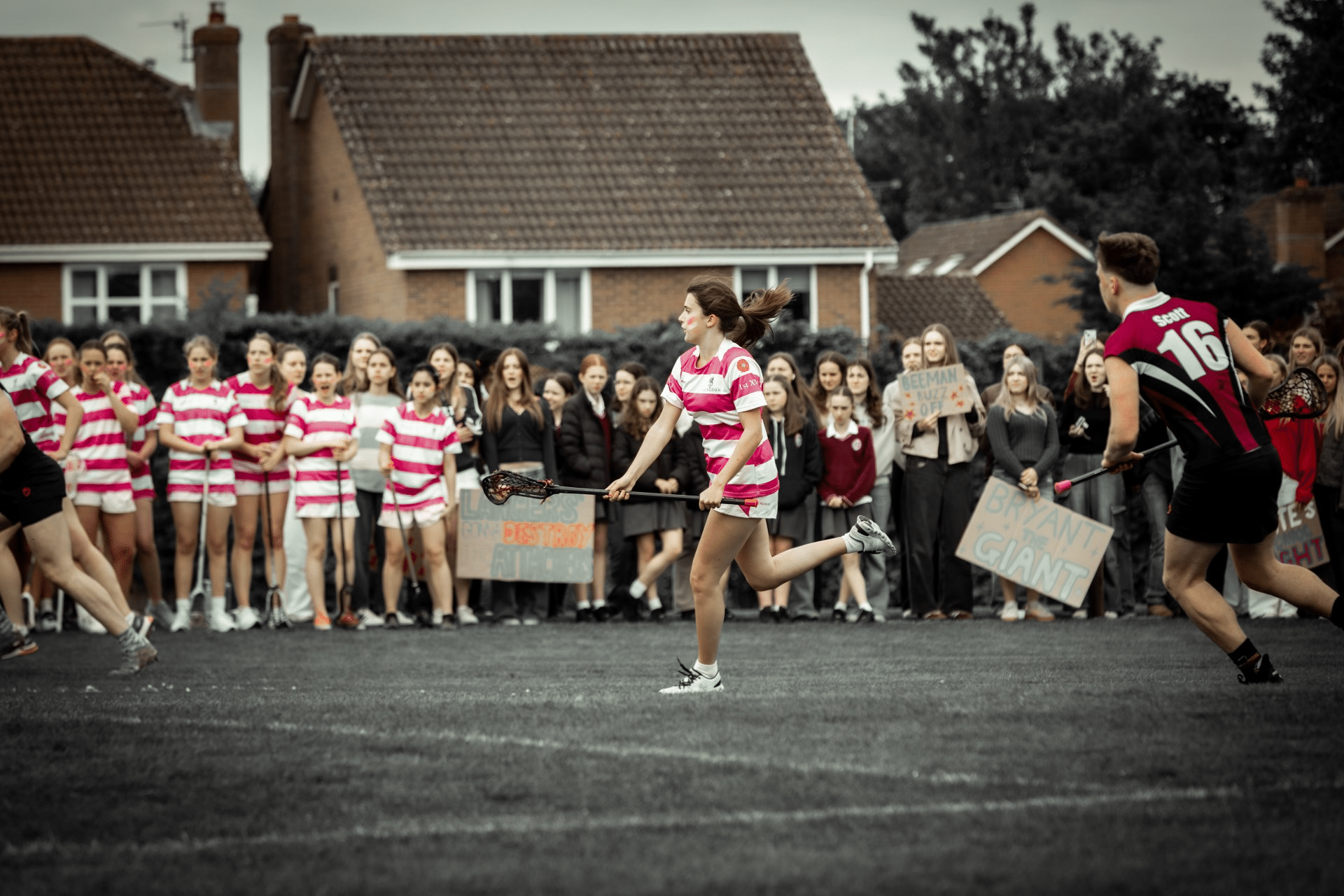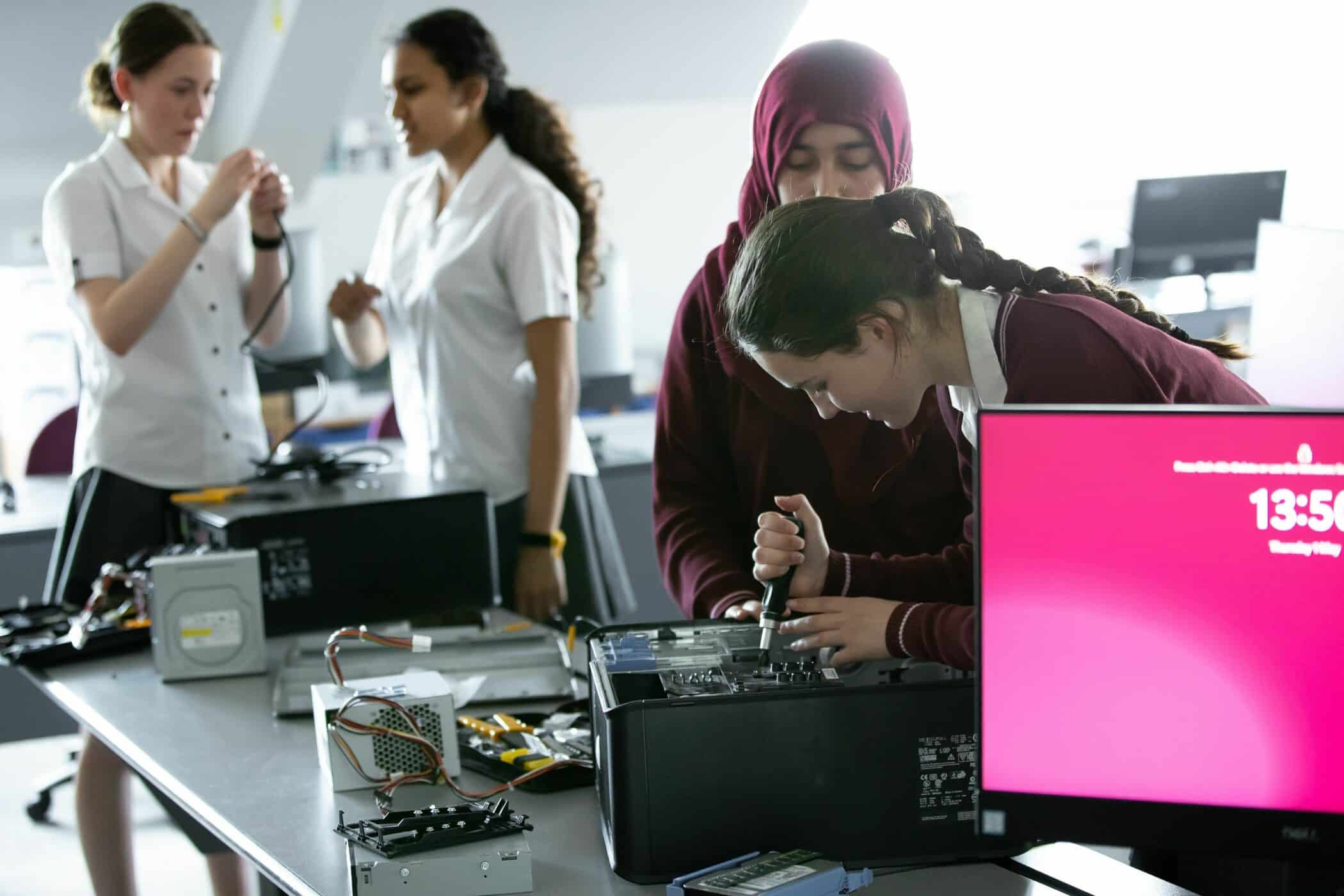September 2022
On 12 September we visited Wycombe Abbey for the GSA Girls Go Gold conference. The day consisted of two keynote talks, before an afternoon of chosen practical sessions with professional coaches and athletes doing netball, lacrosse, rugby, cricket, athletic lifestyle, fitness, and careers in sports media.
In the morning we listened to two speakers: author, Sue Anstiss and Professor Greg Whyte who both highlighted the importance of diversity within sport and focused specifically on women’s sport. As young sporty women we are very interested in the topic of equal rights within sport, and while we were aware of some of the more current inequalities, Sue’s talk about the history of inequality in sport was enlightening. We heard the story of the Dick, Kerr Ladies football team in the 1920s being the premier team in the country and extremely popular with over 50,000 spectators turning up to matches. In 1921 the FA banned women’s football citing that the game was inappropriate for women, purporting the myth of female fragility in the era. Contact sports were deemed too aggressive and damaging to females whereas sports such as tennis and golf were acceptable as they could be played elegantly with no physical contact. Pierre de Coubertin, second president of the Olympic Committee, said that the inclusion of women in the Olympics would be “impractical, uninteresting, unaesthetic, and incorrect”. The FA’s ban on women’s football lasted 50 years until 1971, which shocked us. The legacy of the thought processes and decisions of that time are only just on their way to being reconciled 100 years later. The 2024 Paris Olympics is predicted to be the first Olympics with equal male to female representation.
Sue also suggested how women’s clothing in sport was sexualised and objectified – such as women having to wear skirts in cricket until relatively recently, despite them being impractical and uncomfortable for some. Even in the modern day you still see skorts, skirts and dresses in hockey and netball for example which Sue suggested should be a choice.
There are some positive changes, however: for example, Sue highlighted in this golden age of change increased investments and sponsorship, large media coverage and audiences such as 17.4 million watching the Euros final between Germany v England (23 million when including online streams). Lastly, women have been offered more professional contracts and have growing roles in officiating men’s and women’s sports.
The second talk by Professor Greg Whyte focused on the diversity of the individuals he has supported for the Sport Relief challenges such as Miranda Hart cycling from John O’Groats to Land’s End, and David Walliams swimming the English Channel. The stories of resilience and commitment needed to complete a seemingly ‘impossible’ challenge were fantastic. On the sports science side, he explained to us that we as humans have begun to reach the limit of human performance. Graphs showing the world record times across different running and swimming events for men and women showed a decrease in the frequency of breaking world records and how, if broken, it was by a smaller margin over time. Specifically in 1972 women ran the first ever 1500m event and the increase shown in the graph of speed taken to run the race from 1970s to 1980s implies the use of doping and since then we have seen a much slower progression in speed. Greg emphasised the fact that the female and male anatomy are different in many aspects, but that this fact shouldn’t prevent sports players participating and that each individual needs a different approach to succeed. For example, men are 11% (on average) quicker than women and have larger lung volumes but women have preferential fat metabolism (they use stored fat better) proving that although some have advantages either way, it doesn’t matter.
In the afternoon we all split off to do our three chosen activities where we learnt from professionals such as England Lacrosse head coach Phil Collier and Netball Superleague player/coach Mikki Austin. We thoroughly enjoyed our afternoon doing new drills, taking in their experiences, and developing our skills.
Erin and Esme, Lower Sixth sport scholars

